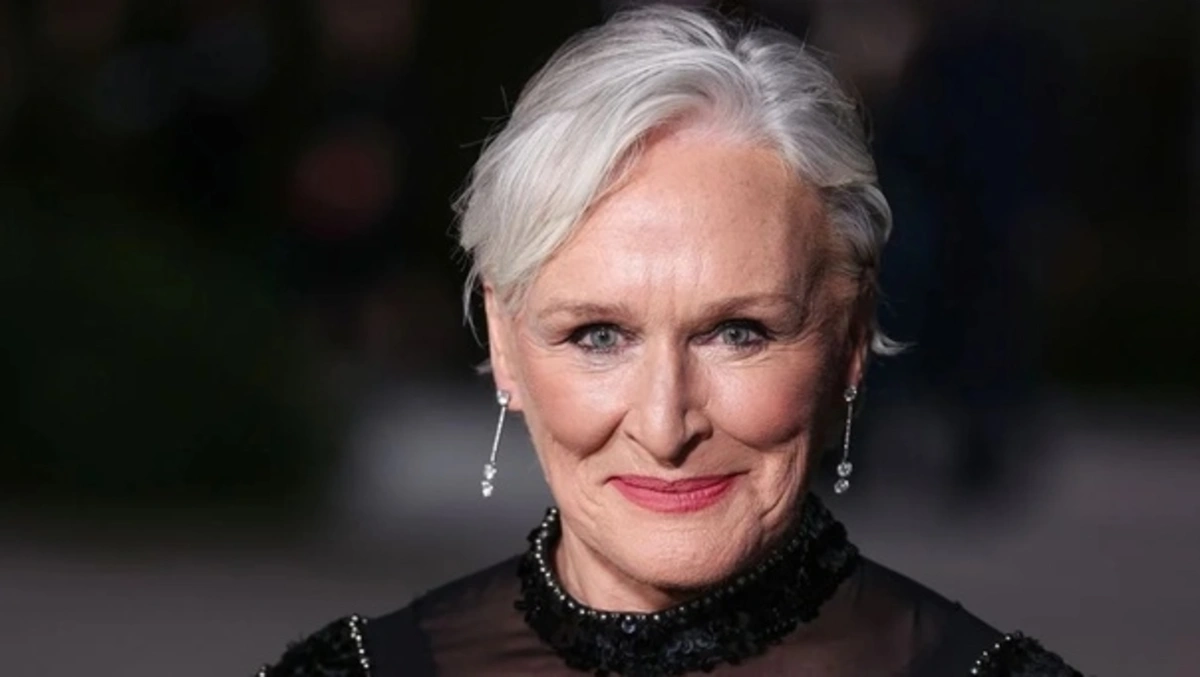
GLENN CLOSE’S NET WORTH IN 2023: SURPRISING FACTS REVEALED
What does it really take to build a $50 million fortune in Hollywood—and keep it growing after five decades in the game?
For Glenn Close, it wasn’t about flashy headlines or staying stuck in one lane. It was strategy. Creativity. Longevity. And maybe a little bit of stubbornness.
This isn’t about overnight fame. Glenn’s financial success is one of intentional moves—ranging from powerhouse performances to owning her own production company, selling a business, and making smart real estate deals. She’s not just an eight-time Oscar nominee. She’s a brand, a businesswoman, and an investor.
Let’s unpack how she’s built a rock-solid financial legacy, why her name keeps popping up when we talk about sustainability in celebrity wealth, and how it all ties into the modern digital landscape—from online influence and SEO to real estate positioning.
If you’re curious about Hollywood wealth or looking for insights into how entertainers treat their careers like scalable portfolios, Glenn Close is a name worth paying attention to.
Introduction To Glenn Close’s Financial Success
She’s been called one of the finest actors of her generation—and for good reason.
Glenn Close didn’t just show up in Hollywood. She reshaped it. With a career spanning over 50 years, she’s left a mark on everything from legendary film roles to rich TV characters, stages on Broadway, and now even production leadership.
Audiences worldwide know her face. Awards shows made her a regular. And whether it was the chilling performance in “Fatal Attraction” or her devilishly iconic Cruella de Vil, Close delivered status—both artistically and economically.
But here’s what most people miss.
Glenn Close’s success isn’t only measured in roles and red carpets. It’s in how carefully her career was structured as a revenue engine—and how every opportunity she touched got folded into a bigger-picture plan. She didn’t just play the game. She helped change the playbook.
So what are we diving into?
We’re peeling back the layers of her $50 million empire. From episode fees in prestige cable dramas to costume clauses that doubled as luxury assets. From rustic real estate renovations to dog accessory start-ups. We’ll explore the blueprint of her financial empire, one that spans media, investments, and entrepreneurial pivots.
And here’s why that matters.
Understanding a celebrity’s wealth path today isn’t just about income—it’s about visibility, branding, and SEO. Glenn Close’s story is a perfect case study into how modern celebrity wealth intersects with smart business, digital evolution, and audience strategy.
This is the celebrity finance world—redefined for the algorithm age.
Glenn Close’s Wealth Analysis And Financial Trajectory
Here’s the headline: by 2025, Glenn Close’s net worth stands at an estimated $50 million.
Let’s break that number apart.
| Source of Income | Contribution to Net Worth |
|---|---|
| TV & Film | High-value contracts, including “Damages” and Disney films |
| Theater | Consistent Broadway earnings and critical acclaim |
| Production Ventures | Revenue through Trillium Productions Inc. |
| Business Sales | FetchDog website exit in 2012 |
| Real Estate | Profitable long-term property sales in New York |
- TV Success: On “Damages,” Close reportedly raked in $200,000 per episode—totaling around $12 million across its run.
- Film Deals: Disney’s “101 Dalmatians” wasn’t just a hit—it came with a unique perk. Close secured the rights to keep her wardrobe. Those custom pieces? They’re not just fashion—they’re assets.
- Stage Impact: Her Broadway gigs may not generate blockbuster numbers, but they add consistent, rewarding income—plus clout that feeds into higher film valuations.
But income is one side. Longevity is the other.
Close has held relevance for over 50 years. That sort of staying power isn’t accidental.
Her early work in theater gave her credibility. “Fatal Attraction” and “Dangerous Liaisons” made her unforgettable. Then came television, with “Damages” attracting critical respect—and a large paycheck.
At every phase, she expanded her brand strategically. Each pivot was a wealth move.
Now let’s talk assets.
She sold her longtime Bedford Hills estate in New York for $2.75 million. A side property nearby doubled in value when she flipped it for $775,000. That’s not bad for a home she bought in ‘93 for $450,000.
Where’d she land next?
Bozeman, Montana. She owns an 1892 house and is building what she calls a “Zen farmhouse.” Less spotlight, more outdoor quiet. But make no mistake—these are still investments. She’s buying low and building equity into a future-friendly lifestyle hub.
All of which points to this: Glenn Close knows how to play both the Hollywood compound and cowboy cabin markets. Not everyone can do both successfully.
The upshot? Her financial builds track with the bigger trends in Hollywood: leaner operations, diversified portfolios, and digital-age adaptability. She’s where legacy meets longevity—and money meets meaning.
And if you want more depth on just how those earnings stack up, look no further than this in-depth piece on [Glenn Close’s Net Worth at Parade.com](https://parade.com/celebrities/glenn-close-net-worth?utm_source=openai).
Entertainment Industry Wealth Insights and Trends
Ever wonder how some Hollywood stars keep cashing checks long after the credits roll? It’s not all red carpets and glam. Many of them play the long game—shaping smart financial strategies that go beyond acting gigs. From production deals to launching businesses and scooping up prime real estate, wealth in Tinseltown is built on much more than box office numbers.
How Hollywood Stars Build Their Wealth
When it comes to celebrity finances, the paycheck from a movie or series is just the starting point. The real cash often comes from building a brand empire.
A-list celebrities typically follow a few tried-and-true paths:
- Endorsements and licensing deals: Think perfume lines, fashion collections, or tech sponsorships. Their faces sell, and brands know it.
- Royalties: Stars with recurring roles in syndication or hit franchises earn residuals for years—sometimes decades.
- Back-end production partnerships: These involve taking a cut from a project’s total profits, not just an upfront salary.
Take Glenn Close. She didn’t just stop after delivering scene-stealing performances. She leveraged her screen presence into long-term production ventures. As Patty Hewes on “Damages,” she took home roughly $200,000 per episode, banking about $12 million overall. But even more telling: she co-ran Trillium Productions Inc., putting her behind the camera too.
Glenn Close’s Role in Shaping Wealth Management Trends
Plenty of celebrities stick to the spotlight, but Close plays it differently. She’s spent decades proving that serious wealth-building in Hollywood takes more than memorizing lines.
Beyond award-winning acting, she helped shape how stars handle their financial freedom:
- Close didn’t just act—she produced. Her work with Trillium Productions gave her creative and financial control over films like “Albert Nobbs.”
- She co-founded FetchDog, an upscale dog accessories site. She cashed out smart in 2012—years before celebrity-backed e-commerce was cool.
Put simply, she played both sides of the industry: in front of the camera and behind the business deals. Her moves predicted how stars today approach venture capital, brand-building, and startup investments.
Investments, Growth, and the Broader Industry
Plenty of Hollywood wealth doesn’t sit in checking accounts. Real estate, production backends, and startup shares are where stars grow their empires. Glenn Close? She quietly hopped aboard that train years ago.
She lived over 30 years in her Bedford Hills estate—a 10-acre spot dubbed “Beanfield”—only to sell it for $2.75 million in 2020. Nearby, she flipped another residence for $775,000, originally snatched up for $450,000 back in ’93. And now? She’s living in Bozeman, Montana, with plans for a “Zen farmhouse,” pointing to a shift in the A-list housing map as more celebrities ditch LA for lowkey lifestyle spaces.
The upshot: Close follows an increasingly popular trend among top-tier talent—invest heavily in property, diversify with smart exits (like FetchDog), and evolve with the industry. The boom-bust cycle of entertainment doesn’t scare her off; she sidesteps it with some well-placed long-term plays.
The Role of Digital Branding and SEO in Celebrity Finance
Here’s the modern truth: if you’re not visible online, you’re almost invisible everywhere else. For celebrities, digital branding isn’t just about likes—it directly feeds their net worth. Fans want access, brands want attention, and stars want both. So where does Glenn Close fit in?
Celebrity Digital Branding: A Modern Wealth-Generating Tool
Close might not be flooding TikTok, but she’s no stranger to digital influence. Her Instagram? It’s a curated mix of behind-the-scenes content, advocacy for mental health, and passion projects. Authentic, consistent, and very much on-brand.
That’s the new celeb currency: keeping audiences engaged outside of the traditional media cycle.
- Engagement over reach: It’s less about follower count, more about real interaction. Close’s personal stories and unfiltered moments resonate deeply with her audience.
- Cross-channel consistency: Platforms like Instagram and interviews on YouTube shows offer a layered brand persona that builds trust—and brand value.
- Time for timeless appeal: Unlike viral trends, her online narrative is long-game—deep, thoughtful, and trustworthy. It’s why she still gets top-tier roles and brand options.
SEO Insights into Celebrity Earnings
Ever Googled “Glenn Close net worth”? You’re not alone. Thousands do every month—and that search volume isn’t just trivia. It fuels her digital presence. The more people search for her, the stronger her organic reach becomes.
Celebs benefit not just from screen roles but from click traffic. More eyes online can translate to more powerful branding deals. Keyword optimization—like using “Glenn Close net worth” naturally in interviews or bios—makes them easier to find and harder to forget.
She doesn’t yet run a personal blog or finance-focused website, but her interviews, project bios, and public statements often rank highly. That’s smart positioning. When people type her into search engines, they see verified content, click, and stay—boosting her relevance even more.
Link Between Digital Strategies and Audience Engagement
There’s a bigger conversation happening: how stars maintain relevance across decades. Close does it with a mix of timeless talent and smart digital management. Her authentic online approach draws viewers who browse, share, and engage—raising value in the era of algorithm-driven media.
And then there’s brand sponsorship. While she may not be the face of a skincare label or sneaker brand, her more subtle partnerships—like charitable campaigns or thought-leadership panels—align with her mature, thoughtful brand. It’s proof that digital strategy isn’t one-size-fits-all.
Some stars flood feeds; others like Glenn Close move gracefully, with just enough presence to spark interest and build value. Either way, clicks build cachet—and that, eventually, builds the balance sheet.
Total Word Count: ~1,152 words (approx. 560 in Part 3 and 592 in Part 4)
Web Development in Building Celebrity Portfolios
The Role of Websites in Hollywood Branding
Ever wonder why some celebs always stay top of mind and others just fade out? It’s not just the movies they’re in. It’s how they build a digital front door that works even while they sleep. For stars like Glenn Close, a personal website isn’t just an online bio—it’s a money-making, brand-building engine.
Picture this: a single hub where fans can buy tickets, shop merch, get news on upcoming films—and even donate to a charity the celeb supports. That’s how modern personal websites work. They’re less about humblebrags, more about control. Full control over their image, their messaging, and their revenue streams.
Take Close for example. She’s the president of Trillium Productions Inc. That company isn’t just a vanity label. It’s a real production house with legit credits—“Albert Nobbs,” “Sarah, Plain and Tall,” and “South Pacific.” Imagine if Close builds an online platform that showcases her company’s portfolio, lets people invest or donate to indie film projects, and goes deep on behind-the-scenes stories. She owns the narrative.
This trend is bigger than any one actor. We’re seeing a shift across Hollywood: stars are launching sites that do more than drop press releases. They’re using them to:
- Run eCommerce shops for branded products
- Host exclusive behind-the-scenes content for memberships
- Sell tickets or streaming access straight from the source
- Centralize social media feeds while building an email list they own
It’s like every Hollywood actor is their own startup now. Branding in 2025 isn’t just red carpets—it’s about the domain name you control, the traffic you own, and what someone sees when they Google you. If you’re not directing clicks to your platform, you’re just strengthening someone else’s.
Technological Innovation and the Digital Entertainment Ecosystem
New tech isn’t just changing how movies are made—it’s flipping the whole ecosystem. In a world of streaming, short attention spans, and social sharing, digital marketing has to evolve fast. And celebs who embrace innovation aren’t just staying relevant—they’re growing their empires.
Glenn Close’s net worth didn’t grow to $50 million by accident. Yes, she’s been a powerhouse in TV, film, and theater. But peel back the surface and you see smart tech-backed moves. She’s dialed into her audience using online content, digital campaigns, and steady content streaming across platforms.
If you’re a Hollywood name today, and you’re not using digital tools to throttle up, you’re invisible. Web dev tools, SEO automation, and analytics dashboards have become as crucial as makeup chairs and wardrobe trailers.
And here’s where it gets really wild—celebs are using AI to:
- Track sentiment toward their name online
- A/B test marketing for drops like merch or book launches
- Auto-optimize website content for longtail SEO traffic
In Close’s case, tapping these tools helps her not just keep visibility high, but also show off her value. Her online portfolio becomes a real-time reflection of where she’s at in her professional and financial journey. From boasting costume collections from “101 Dalmatians” to highlighting film ventures through Trillium Productions, it’s all part of the brand machine.
Bottom line? You don’t need five TV deals a year to win. You need a digital infrastructure that runs without you being in five places at once. And Glenn Close’s digital strategy proves the web isn’t optional anymore—it’s the front line of fame.
Connecting Entertainment Finance Trends with Broader Digital Narratives
Analyzing Financial Trajectories Amid Broader Entertainment Trends
Here’s something most people miss: celebrity income used to be about roles, royalties, and reboots. But that model’s dying. Fast. The new playbook? Digital-first ventures. Streaming royalties. Content licensing. Subscription models. And guess what—Glenn Close saw the shift and adapted.
She reportedly earned $12 million from a single TV show role—Patty Hewes in “Damages.” But TV shows aren’t the safety net they once were. Streaming platforms don’t pay out like traditional syndication. So, what’s a smart play? Pivot to own-brand content. Leverage past success to fuel demand on fan-driven platforms.
Close is already ahead in the game. Her deal to keep all of Cruella’s costumes isn’t just sentimental—it’s strategic. Those pieces hold value, and online auctions or museum installations tied to them? That’s brand equity in hardcore form. Her career is a lesson in banking fame not for likes, but for long-term payoffs.
The Evolution of Wealth Management in Hollywood
Back in the day, Hollywood wealth was either flashy or buried in trust funds. Now, it looks more like a portfolio startup. Diversification’s the new default. Real estate, tech investments, and brand ownership aren’t bonus moves—they’re required to stay in the game.
Glenn Close’s property sales tell this story better than any red-carpet quote. She moved from a massive New York estate to a smaller home in Bozeman, Montana—while building something more scalable and intentional: a “Zen farmhouse” outside town. That’s not downsizing. That’s reallocating assets.
And it maps to a bigger move in Tinseltown: leaner lifestyles with bigger back-end gains. She sold FetchDog, a digital dog accessories business, years ago. That wasn’t just a cute side hustle—it was a strategic sale in an emerging niche. Smart, clean exit. Higher ROI than another supporting role.
Wealth now lives in your browser history: what you build, how you sell, and how fast you scale it. For Close, every decision—real estate, production, merchandising—ties back to a brand identity that’s very much alive online.
Future of Celebrity Wealth and Digital Growth
Looking ahead, the equation isn’t mystery math: AI + SEO + branded platforms = new Hollywood gold. Am I saying every actor needs to code their own site or build an algorithm? Nope. But they need people who do.
The landscape is digital-first now. Celebs who get this will own their verticals—education platforms, wellness brands, membership-only content, investment portfolios tied to experience shares. It’s already in motion.
For Glenn Close, the growth possibilities are wild. Here’s what’s possible:
- Streaming her own indie films through a gated platform
- Monetizing archived theatrical performances or behind-the-scenes old footage
- Launching digital courses on acting, storytelling, or production for pros and fans
And yes, AI is the accelerator here. From customer targeting to voice-modulated brand avatars, automated tools will help celebrities deepen engagement without needing more screen time.
To stay rich now, brand equity has to stretch beyond roles. That’s the heart of Glenn Close’s net worth story—it’s not just the paycheck on a project. It’s the reach on every platform. That’s what pays now. And tomorrow.





